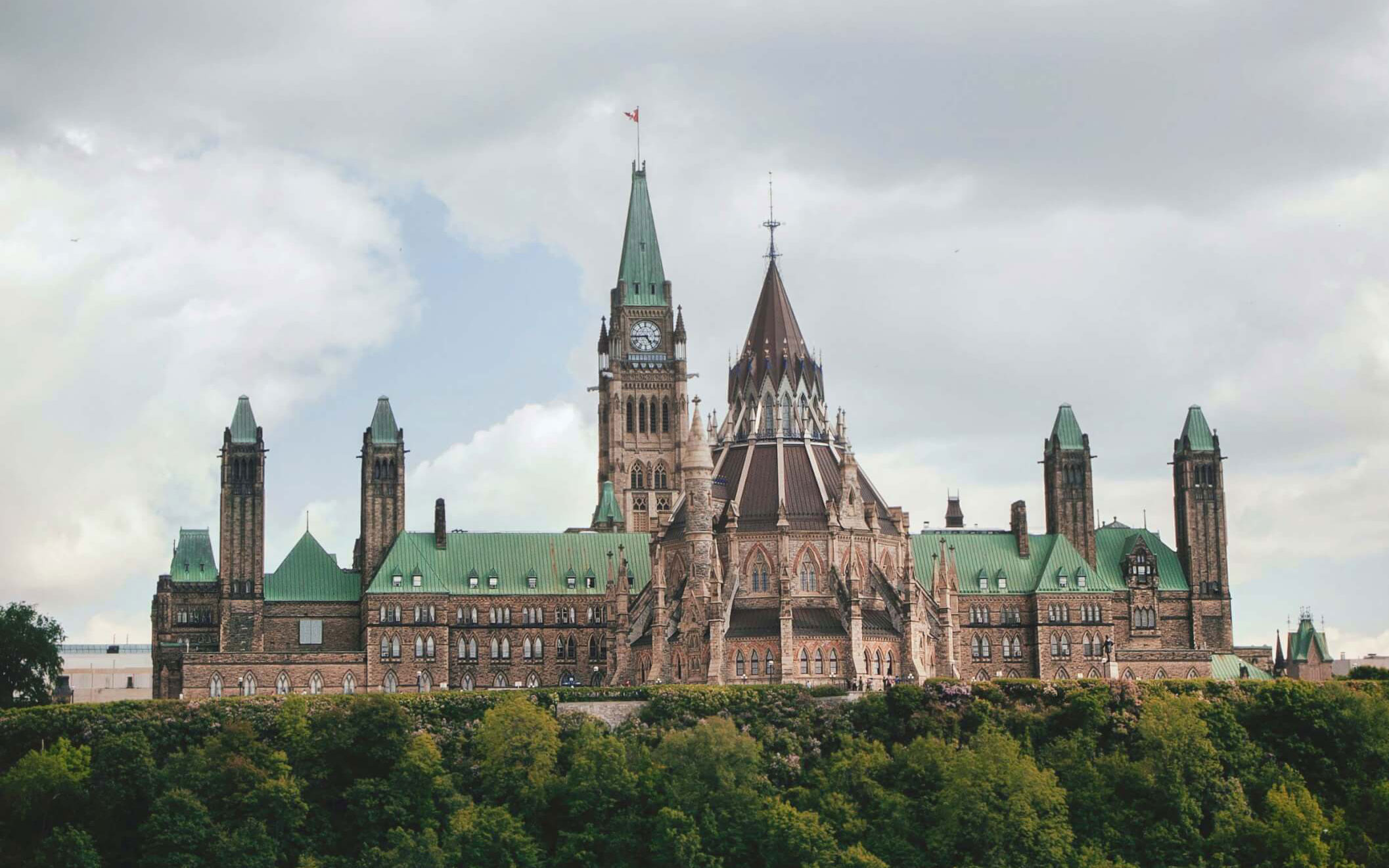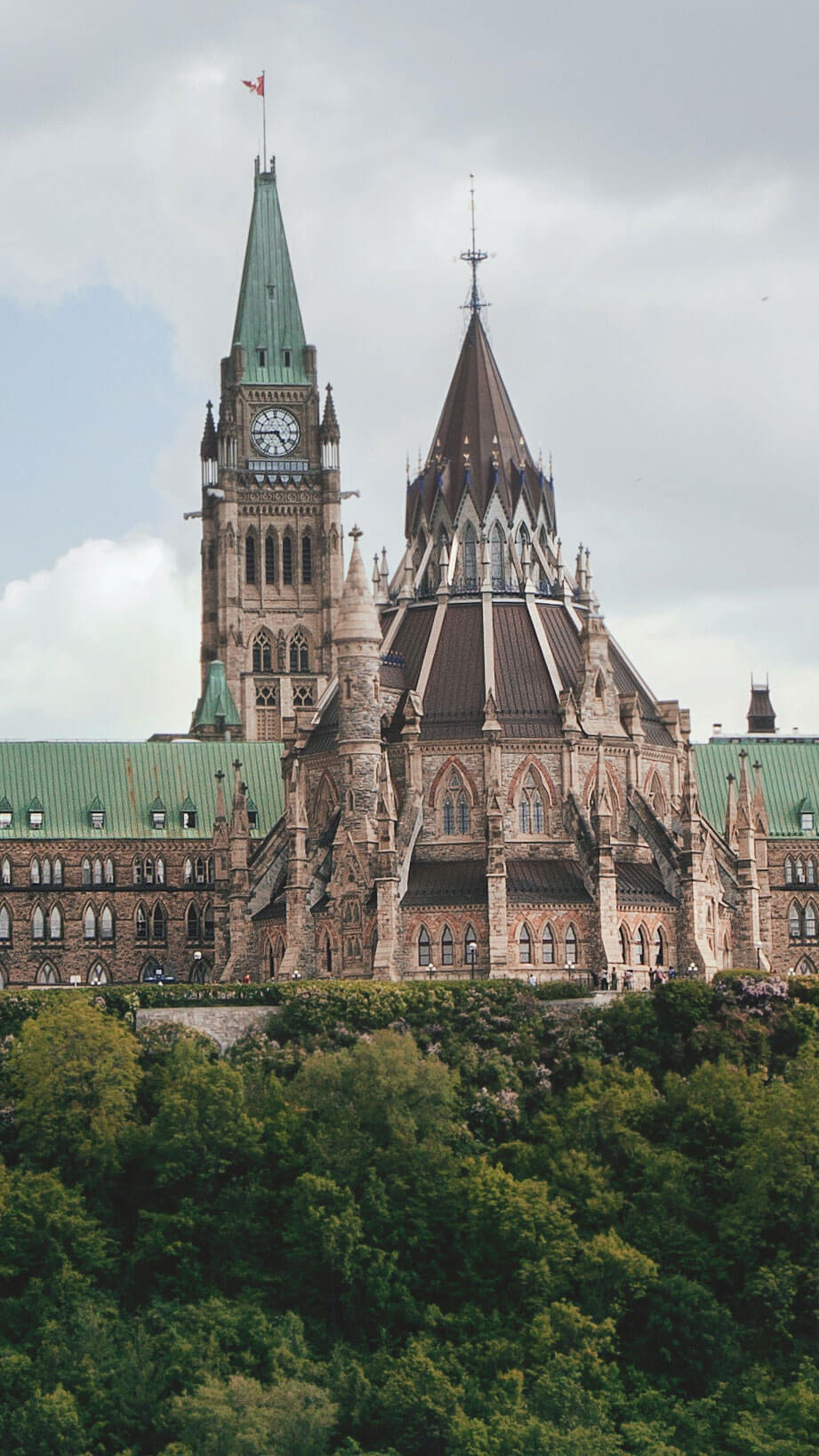Politics and International Studies Courses
Please note that this program has two associated honours majors, International Development and International Relations.
General Major: Politics and International Studies (12 courses)
- HIS-106; HIS-108; POL-121; POL-208; POL-301; POL-322;
- Three of POL-201, 210, 215, 246;
- Four of APS-339, POL-306,POL-307, POL-308, POL-312, POL-318, POL-345, POL-380*
- One approved course in a modern second language
Note: POL-380 may be completed in an approved off-campus program
Minor: Politics and International Studies (6 courses)
- POL-121; POL-208;
- Two of POL-201, 210, 215, 246;
- Two of APS-339, POL-301, POL-306, POL-307, POL-308, POL-312, POL-318, POL-322, POL-345
Course Details
Introduction to Politics & International Studies POL-121
An introduction to the study of politics, including forms of government, the building blocks of politics, and the various visions that people bring to political life.
Introduction to International Development POL-201
This course develops a basic level of core leadership and project management competencies for guiding social entrepreneurs to achieve sustainable community development. Classes focus on the community development cycle and principles; analyzing the role of worldview, leadership and global partnerships in a community’s development; and identifying common issues and resources related to food security and agriculture, health and HIV/AIDS, disaster risk management, justice in gender and environment, and local community governance.
Prerequisites:
POL-121
Introduction to International Relations POL-208
A study of contemporary relations among states, including an analysis of basic concepts and issues such as power, sovereignty, nationalism, security, diplomacy, war and peace, international law and organization, transnationalism and independence. Attention is also given to different approaches to the study of international relations.
Prerequisites:
POL-121
Canada and the World POL-210
An introduction to Canadian government and politics, with special emphasis on Canada’s foreign affairs, and its role in the world. Topics covered include the constitution, the role of the executive, legislative and judicial branches, parties, elections, and policy making, both at home and abroad.
Prerequisites:
POL-121Recommended:
POL-208
Introduction to International Political Economy POL-215
An introduction to how competing political philosophies and ideologies explain different economic practices of states, how political forces and institutions affect the operation of international markets, and how global economic institutions operate. Emphasis will be given to developing world economies and issues of social and political justice.
Prerequisites:
POL-121Recommended:
POL-208
Human Rights and International Justice POL-246
An introduction to the theories, structures, and issues of human rights in global politics, with special emphasis on the Charter and Canada. Practical case studies will be used to facilitate a clear understanding of rival approaches, as well as challenges to and tensions in rights regimes at home and abroad.
Prerequisites:
POL-121
Current Issues in Politics & International Studies POL-301/401
A seminar course surveying key, contemporary issues in politics & international studies. The course provides substantial space for independent student research, including opportunity to develop research questions, with special attention to foundational issues in those questions, that may lead to further study in graduate school. Priority will be given to Christian approaches to perennial issues in politics & international studies such as order and diversity, populism and polarization, neo-liberalism and development, the role of the institutional church, nationalism, humanitarian intervention, and responsibilities in and to the global commons (such as the environment).
Prerequisites:
Year 4 standing. POL-301/401 is the Capstone Course for the Politics and International Studies program and is required for all majors in the 4th year.
Public Policy POL-306
Over 40 years ago, Thomas Dye defined ‘public policy’ as “anything a government chooses to do or not to do.” Though perhaps oversimplified, good public policy is essential public justice. It is the art of developing government responses to public problems. This course will study the public policy process that governments establish within which citizens function, and within which laws are made, challenged, and changed. Issues studied will include approaches to public policy, actors, institutions and instruments of policy, agenda setting, public policy formation and decision making, implementation, and evaluation. Students will develop research based on a major problem in public policy at any level of municipal, provincial, or federal jurisdiction.
Prerequisites:
POL-121
Totalitarian Regimes of the 20th Century POL-312
A thematic and comparative course examining the history of the totalitarian political movements of the 20th century and their world- wide impact. The course focuses on four main areas: international fascism and Nazism; communism, both Western and non-Western; totalitarianism’s effects on the non-totalitarian world; and resistance to totalitarianism. Throughout the course, attention will be given to the religious nature of totalitarian systems and their historical conflict with other religious commitments, especially those of Christianity.
Prerequisites:
HUM-120 or HIS-108
Comparative Global Politics & Religion POL-318
Policy pundits and academics alike have been gripped since 9/11 with la revanche de Dieu, what international theorist Scott Thomas calls “the global resurgence of religion.” Far from the disappearance of religion in global politics, we are witnessing the often simultaneous growth of both religious and secular politics. This course is a comparative study of contemporary instances of that competition, including examples from the USA, Brazil, Hungary, Nigeria, the Magreb, China, and more. Particular attention is paid to what we can learn from comparing these cases, whether in competing forms of populism, nationalism, or various forms of religious & secular politics.
Prerequisites:
HIS-106,
POL-121,
POL-208
Irenaeus to Grotius: Christian Political Thought POL-322
This course provides a broad introduction to great political theory in the Western tradition, with special emphasis on the history of Christian political thought. It will address perennial questions addressed by both Christian and non-Christian political thinkers, such as: What is justice? What is the foundation of political authority? What is the proper relationship of church and state? These questions will be approached more normatively (asking how societies ought to answer them) than
descriptively (observing how they have answered them).
Prerequisites:
POL-121
Internship POL-380
The internship course is designed to allow senior students majoring in Politics and International Studies the opportunity to apply their skills and knowledge of the discipline in an occupational setting. Internships are completed in corporate, non-profit or governmental organizations and students are required to observe and participate in a job-related capacity under supervision.See page 61 of the Academic Calendar for information on internships.
Prerequisites:
Year 3 or 4 standing and permission of the instructor
Introduction to Law POL-307
An introduction to the historical development and current shape of law in Canada, with emphasis on Canada’s context within the larger legal world, pathways to legal careers, and the challenges and opportunities posed by international law.
Prerequisites:
POL-121,
POL-210
The Free Society POL-308
An historical and contemporary survey of fundamental rights and freedoms intrinsic to a free society, covering practical cases in the legal history of Canada and comparative cases in the contemporary North Atlantic, Muslim, Hindu, Buddhist and Chinese worlds. In particular, students will be challenged to consider criticisms of religious freedom, and how to meaningfully balance these in the pursuit of justice.
Prerequisites:
POL-121 or HIS-108; POL-210 or HIS-222
Labour, Justice & Globalization POL-345
We are witnessing a global economy in which workers and corporations seem to be fast falling apart in income and ideology, and where sinking economies and recessing superpowers sag under colossal public debt. In the often tired contest between state regulation and market interests, work itself often loses both its meaning and dignity. This course studies work: its globalization, the peril and promise of that globalization, governance challenges, and market successes. Special attention is paid to the role workers associations, unions, and both fair and free trade can play in pursuit of worker’s rights, especially in at risk political contexts.
Prerequisites:
Recommended:
POL-215



